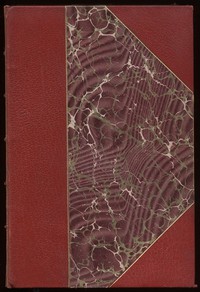Guy Mannering; or, The Astrologer — Complete by Walter Scott (good books to read in english .TXT) 📗

- Author: Walter Scott
Book online «Guy Mannering; or, The Astrologer — Complete by Walter Scott (good books to read in english .TXT) 📗». Author Walter Scott
The Sheriff received also the depositions of the unfortunate father and his servant, concerning what had passed at their meeting the caravan of gipsies as they left the estate of Ellangowan. The speech of Meg Merrilies seemed particularly suspicious. There was, as the magistrate observed in his law language, damnum minatum--a damage, or evil turn, threatened--and malum secutum--an evil of the very kind predicted shortly afterwards following. A young woman, who had been gathering nuts in Warroch wood upon the fatal day, was also strongly of opinion, though she declined to make positive oath, that she had seen Meg Merrilies--at least a woman of her remarkable size and appearance--start suddenly out of a thicket; she said she had called to her by name, but, as the figure turned from her and made no answer, she was uncertain if it were the gipsy or her wraith, and was afraid to go nearer to one who was always reckoned, in the vulgar phrase, ‘no canny.’ This vague story received some corroboration from the circumstance of a fire being that evening found in the gipsy’s deserted cottage. To this fact Ellangowan and his gardener bore evidence. Yet it seemed extravagant to suppose that, had this woman been accessory to such a dreadful crime, she would have returned, that very evening on which it was committed, to the place of all others where she was most likely to be sought after.
Meg Merrilies was, however, apprehended and examined. She denied strongly having been either at Derncleugh or in the wood of Warroch upon the day of Kennedy’s death; and several of her tribe made oath in her behalf, that she had never quitted their encampment, which was in a glen about ten miles distant from Ellangowan. Their oaths were indeed little to be trusted to; but what other evidence could be had in the circumstances? There was one remarkable fact, and only one, which arose from her examination. Her arm appeared to be slightly wounded by the cut of a sharp weapon, and was tied up with a handkerchief of Harry Bertram’s. But the chief of the horde acknowledged he had ‘corrected her’ that day with his whinger; she herself, and others, gave the same account of her hurt; and for the handkerchief, the quantity of linen stolen from Ellangowan during the last months of their residence on the estate easily accounted for it, without charging Meg with a more heinous crime.
It was observed upon her examination that she treated the questions respecting the death of Kennedy, or ‘the gauger,’ as she called him, with indifference; but expressed great and emphatic scorn and indignation at being supposed capable of injuring little Harry Bertram. She was long confined in jail, under the hope that something might yet be discovered to throw light upon this dark and bloody transaction. Nothing, however, occurred; and Meg was at length liberated, but under sentence of banishment from the county as a vagrant, common thief, and disorderly person. No traces of the boy could ever be discovered; and at length the story, after making much noise, was gradually given up as altogether inexplicable, and only perpetuated by the name of ‘The Gauger’s Loup,’ which was generally bestowed on the cliff from which the unfortunate man had fallen or been precipitated.
Our narration is now about to make a large stride, and omit a space of nearly seventeen years; during which nothing occurred of any particular consequence with respect to the story we have undertaken to tell. The gap is a wide one; yet if the reader’s experience in life enables him to look back on so many years, the space will scarce appear longer in his recollection than the time consumed in turning these pages.
It was, then, in the month of November, about seventeen years after the catastrophe related in the last chapter, that, during a cold and stormy night, a social group had closed around the kitchen-fire of the Gordon Arms at Kippletringan, a small but comfortable inn kept by Mrs. Mac-Candlish in that village. The conversation which passed among them will save me the trouble of telling the few events occurring during this chasm in our history, with which it is necessary that the reader should be acquainted.
Mrs. Mac-Candlish, throned in a comfortable easychair lined with black leather, was regaling herself and a neighbouring gossip or two with a cup of genuine tea, and at the same time keeping a sharp eye upon her domestics, as they went and came in prosecution of their various duties and commissions. The clerk and precentor of the parish enjoyed at a little distance his Saturday night’s pipe, and aided its bland fumigation by an occasional sip of brandy and water. Deacon Bearcliff, a man of great importance in the village, combined the indulgence of both parties: he had his pipe and his tea-cup, the latter being laced with a little spirits. One or two clowns sat at some distance, drinking their twopenny ale.
‘Are ye sure the parlour’s ready for them, and the fire burning clear, and the chimney no smoking?’ said the hostess to a chambermaid.
She was answered in the affirmative. ‘Ane wadna be uncivil to them, especially in their distress,’ said she, turning to the Deacon.
‘Assuredly not, Mrs. Mac-Candlish; assuredly not. I am sure ony sma’ thing they might want frae my shop, under seven, or eight, or ten pounds, I would book them as readily for it as the first in the country. Do they come in the auld chaise?’
‘I daresay no,’ said the precentor; ‘for Miss Bertram comes on the white powny ilka day to the kirk--and a constant kirk-keeper she is--and it’s a pleasure to hear her singing the psalms, winsome young thing.’
‘Ay, and the young Laird of Hazlewood rides hame half the road wi’ her after sermon,’ said one of the gossips in company. ‘I wonder how auld Hazlewood likes that.’
‘I kenna how he may like it now,’ answered another of the tea-drinkers; ‘but the day has been when Ellangowan wad hae liked as little to see his daughter taking up with their son.’
‘Ay, has been,’ answered the first, with somewhat of emphasis.
‘I am sure, neighbour Ovens,’ said the hostess, ‘the Hazlewoods of Hazlewood, though they are a very gude auld family in the county, never thought, till within these twa score o’ years, of evening themselves till the Ellangowans. Wow, woman, the Bertrams of Ellangowan are the auld Dingawaies lang syne. There is a sang about ane o’ them marrying a daughter of the King of Man; it begins--
Blythe Bertram’s ta’en him ower the faem,




Comments (0)